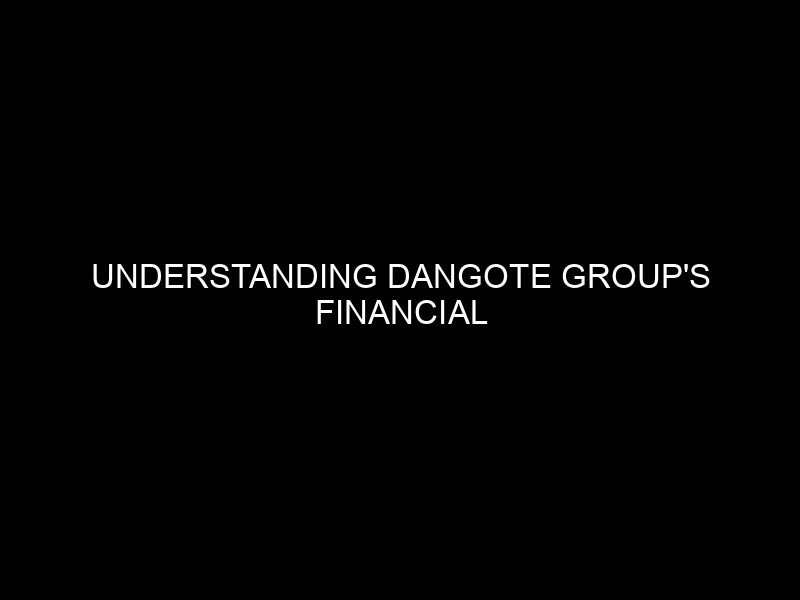In the dynamic landscape of Nigerian business, few names resonate as profoundly as the Dangote Group, led by Africa’s richest man, Aliko Dangote. This conglomerate has not just shaped the industrial fabric of Nigeria but has also been a pivotal player on the international stage. A key aspect of its growth strategy involves sophisticated financial maneuvers, including borrowing from various sources. A significant and much-discussed component of this is the amount borrowed from the Central Bank of Nigeria (CBN). As someone with a background in Nigerian business and an understanding of the Dangote Group, this article aims to provide an in-depth analysis of Dangote’s borrowing from the CBN, exploring its implications and context.
The Financial Dynamics between Dangote Group and CBN
Historical Context and Borrowing Details
To understand the magnitude and impact of the Dangote Group’s borrowing from the CBN, it’s essential to place it within a historical and economic context. The Dangote Group, known for its dominance in commodities like sugar, flour, and cement, has consistently pursued expansive projects, often necessitating significant capital. The Central Bank of Nigeria, as the country’s primary monetary authority, plays a crucial role in financial stability and liquidity provision.
It’s crucial to specify the amount borrowed, the terms of the loan, and the purpose behind this significant financial decision. The exact figures of the Dangote Group’s borrowing from the CBN have been a subject of public interest and scrutiny. These loans are often tied to specific projects or expansion plans of the Dangote Group and come with terms that reflect the mutual interests of both the conglomerate and the national economic objectives.
Strategic Implications of the Borrowing
The borrowing by Dangote from the CBN is not just a financial transaction but a strategic maneuver. It reflects a symbiotic relationship between Nigeria’s largest conglomerate and its central financial institution. This partnership has broader implications for the Nigerian economy, employment, and industrial development. The funds are typically channeled into large-scale projects that promise substantial economic returns and job creation. However, it also raises questions about market dynamics, competition, and financial ethics.
The Impact on Nigerian Economy and Industrial Growth
Economic Benefits and Challenges
The infusion of capital from the CBN to the Dangote Group has a ripple effect on the Nigerian economy. On one hand, it facilitates large-scale industrial projects, boosts local manufacturing, and reduces dependence on imports. On the other hand, it brings to light concerns about monopolistic practices, interest rates, and the repayment capacity of such large loans. The sustainability and long-term impact of these loans on Nigeria’s economic health remain subjects of debate among economists and financial experts.
Job Creation and Social Implications
Employment generation is one of the most touted benefits of the Dangote Group’s projects financed by CBN loans. These projects often create thousands of jobs, both directly and indirectly, and contribute to skill development in various sectors. However, there’s also a need to analyze the quality of these jobs and the long-term career prospects for the Nigerian workforce.
Dangote Group’s Repayment Strategies and Financial Health
Loan Repayment and Fiscal Responsibility
A crucial aspect of the Dangote Group’s borrowing is its approach to loan repayment. The group’s financial health, revenue streams, and profit margins play a pivotal role in its ability to meet its obligations to the CBN. The terms of the loan, including the interest rates and repayment schedule, are essential in assessing the fiscal responsibility and financial prudence of the Dangote Group.
The Role of Diversification and Expansion
Dangote’s diversification into various sectors, including petroleum, agriculture, and telecommunications, is a strategic move that impacts its financial stability. This diversification not only spreads risk but also opens up new revenue streams, aiding in the repayment of loans and sustaining business growth.
Frequently Asked Questions (FAQs)
Q1. What is the exact amount Dangote borrowed from CBN? A1. The specific amount borrowed by the Dangote Group from the CBN varies based on the project and the terms of the loan. It’s essential to refer to official financial statements and reports for accurate figures.
Q2. How does Dangote’s borrowing affect the Nigerian economy? A2. Dangote’s borrowing impacts the Nigerian economy by fueling large-scale industrial projects, creating jobs, and stimulating local manufacturing. However, it also raises concerns about market competition and financial stability.
Q3. Are there risks associated with such large-scale borrowing? A3. Yes, risks include potential market monopolies, the burden of repayment on Dangote Group, and the impact on the national economy if these loans are not managed responsibly.

Leave a Reply